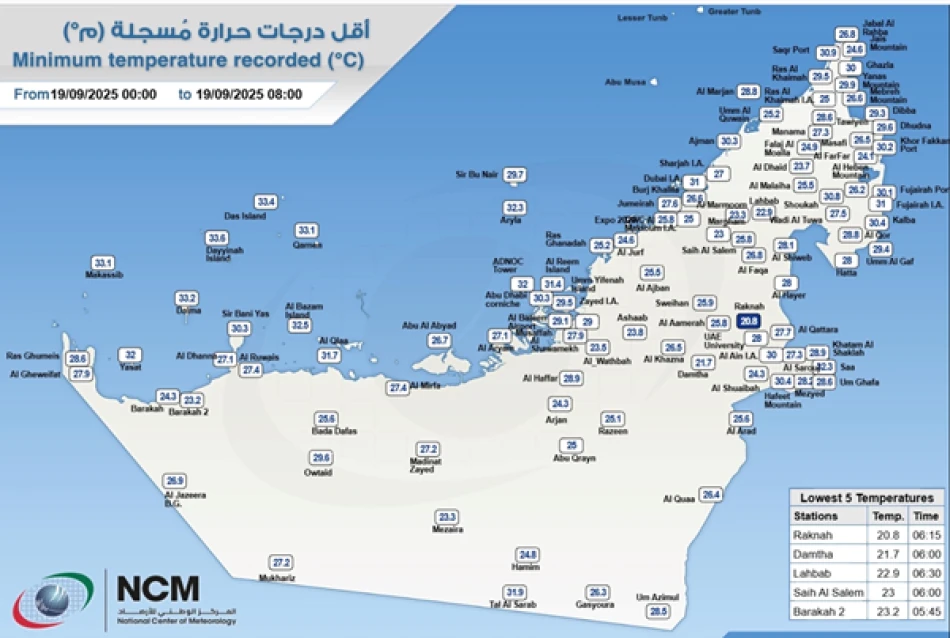
Ras Al Khaimah Records UAE's Lowest Temperature Amid Cold Snap
UAE Records Surprisingly Mild Winter Low as Climate Patterns Shift in the Gulf
The UAE's National Center of Meteorology recorded a minimum temperature of 20.8°C (69.4°F) on Friday morning in Rakna, Al Ain, marking what meteorologists consider a relatively warm winter low for the traditionally scorching desert nation. The reading, taken at 6:15 AM local time, reflects broader climate trends affecting the Gulf region's seasonal temperature patterns.
Desert Nation's Changing Winter Profile
For a country where summer temperatures routinely soar above 45°C (113°F), Friday's minimum temperature represents the cooler end of the UAE's winter spectrum. However, this 20.8°C reading is notably mild compared to historical winter lows in the region, where temperatures in desert areas and mountainous regions like Jebel Jais have previously dropped to single digits during peak winter months.
The Al Ain region, where the temperature was recorded, sits inland from the coastal humidity that typically keeps temperatures elevated year-round in cities like Dubai and Abu Dhabi. This area normally experiences the country's most pronounced temperature variations between day and night.
Regional Climate Context and Energy Implications
The relatively warm winter morning temperature carries significant implications for the UAE's massive energy consumption patterns. Milder winters typically reduce heating demands in commercial and residential buildings, though the country's energy usage remains dominated by cooling systems for most of the year.
Comparison with Gulf Neighbors
Similar temperature patterns are emerging across the Gulf Cooperation Council states, where Saudi Arabia, Kuwait, and Qatar have also reported warmer-than-average winter conditions in recent years. This trend aligns with global climate data showing accelerated warming in arid regions, particularly affecting traditional seasonal cooling periods that provide relief from extreme summer heat.
Economic and Infrastructure Considerations
For the UAE's tourism sector, which heavily markets winter months as the peak season for outdoor activities and events, consistently mild temperatures support the country's positioning as a winter destination for European and North American visitors. Major events like the Dubai Shopping Festival, Formula 1 races, and outdoor concerts are strategically scheduled during these cooler months.
The temperature data also influences agricultural planning in regions like Al Ain, known for its date palm cultivation and experimental farming projects. Warmer winter minimums can affect crop cycles and water management strategies in the country's ongoing food security initiatives.
Most Viewed News

 Layla Al Mansoori
Layla Al Mansoori






